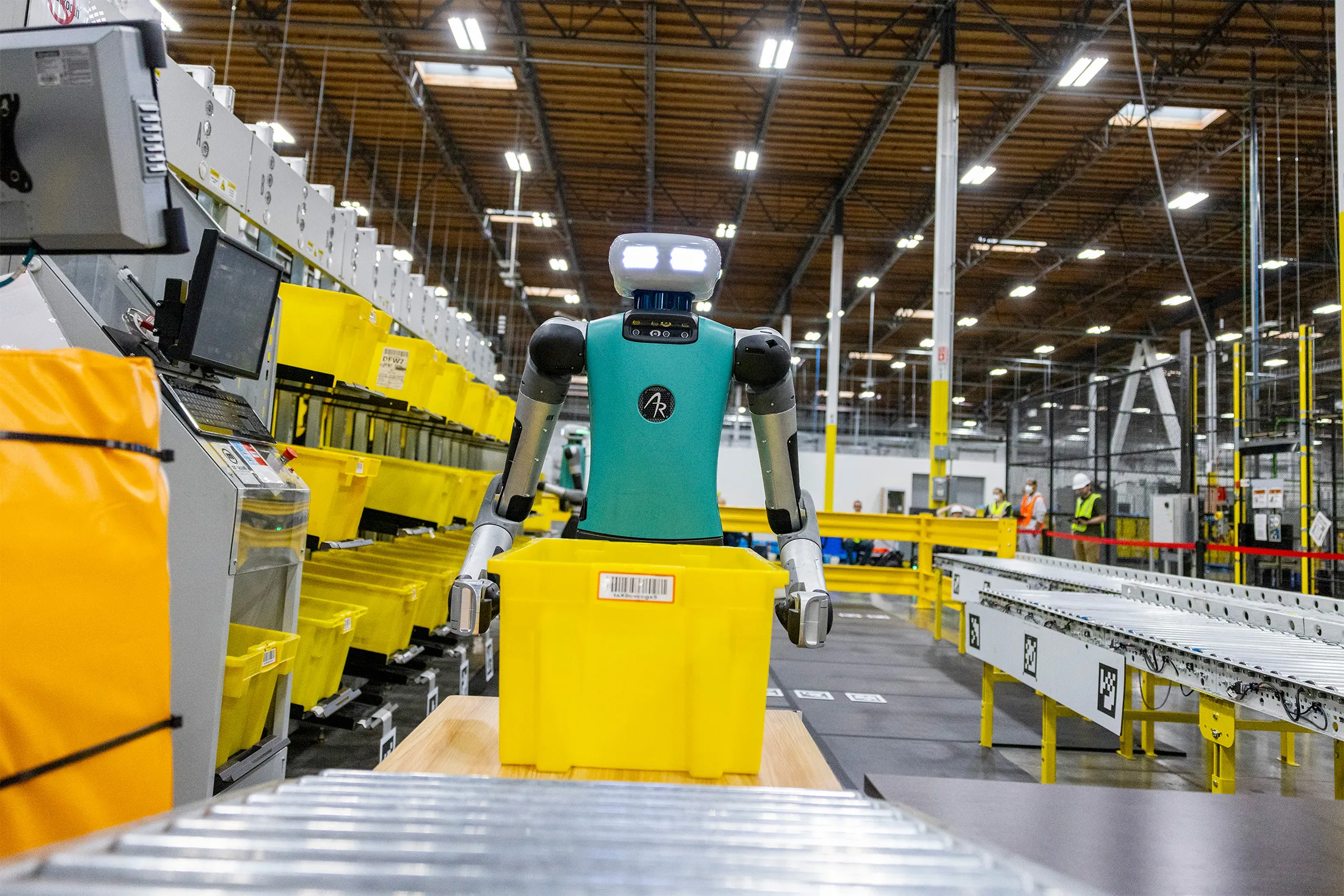In a historic leap toward full-scale automation, Amazon hits 1 million robots deployed across its global fulfillment network. The milestone unit was delivered to a warehouse in Japan, marking over a decade of robotic integration since the company’s acquisition of Kiva Systems in 2012. This achievement brings Amazon’s robotic fleet nearly level with its human workforce, signaling a new phase in warehouse evolution.
According to The Wall Street Journal, 75% of the company’s global deliveries now involve robotic assistance, redefining how goods are picked, packed, and shipped around the world.
DeepFleet & Vulcan: Driving the Next Robotic Wave
To further optimize operations, Amazon has launched DeepFleet, a generative AI model designed to enhance route coordination and warehouse efficiency. Developed with Amazon SageMaker, this system analyzes internal logistics data to increase robot speed by 10%.
The innovation doesn’t stop there. Amazon’s newest machine, Vulcan, comes equipped with tactile sensors, suction-equipped arms, and advanced vision systems, allowing it to “feel” what it handles, bringing robotic precision closer to human capability.
The rollout aligns with Amazon’s plan to scale next-generation fulfillment centers, such as the one recently launched in Shreveport, Louisiana, which houses ten times more robots than traditional facilities.
While the headline Amazon hits 1 million robots is striking, it represents more than just numbers. In fact, it’s a transformation of the logistics landscape. With AI and robotics now deeply embedded in operations, Amazon is setting the pace for a faster, smarter, and more scalable future in global supply chains.
Also, see:
Tesla Delivers Itself to Customer, Musk Calls It ‘Historic Milestone’
